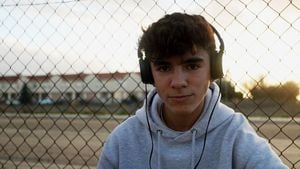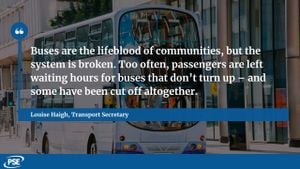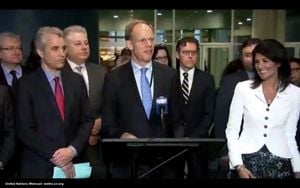Senegal's political stage has recently experienced significant turmoil, with the recent legislative elections igniting waves of excitement and tension across the nation. The focus has been primarily on President Bassirou Diomaye Faye's ruling PASTEF party, which faced off against strong opposition parties as the nation geared up to elect 165 lawmakers to the National Assembly. With over 7 million registered voters eligible to cast their ballots, the stakes were high, driven by promises of reform and the pressing need for economic stability.
The elections, held on November 17, 2024, came just eight months after Faye's remarkable ascension to power, where he won the presidency with 54 percent of the vote. His campaign had largely centered on anti-establishment sentiments, aimed at curbing rampant corruption and addressing the dire economic challenges facing Senegal, particularly among the youth. The election process was refreshingly peaceful, contrasting starkly with the political violence the country had seen prior to the presidential elections earlier this year.
Even as results were still trickling in, Faye's party already claimed victory, according to various local media outlets. Amadou Moustapha Ndieck Sarre, the government spokesman, expressed gratitude for the mandate received from the Senegalese people. “I pay homage to the Senegalese people for the large victory PASTEF has achieved,” he stated. The two main opposition parties quickly conceded defeat, urging their supporters to respect the results whilst also expressing concerns over the election's integrity, with former President Macky Sall hinting at allegations of fraud without providing specific details.
Faye's rise to the presidency seemed to pave the way for expected reforms, but the opposition has branded his government as ineffective and overly preoccupied with vendettas against his predecessors. Unemployment remains alarmingly high, exceeding 20%, as many young Senegalese are desperate for job opportunities, some risking dangerous voyages to Europe on flimsy boats.
The winds of political change stirred up questions about how the newly restructured government, backed by PASTEF's parliamentary majority, will address pressing issues such as public service accessibility, economic challenges, and rising inflation. Citizens are growing increasingly impatient for resolutions, with polls indicating concerns over the cost of living affecting their daily lives.
Faye's efforts have faced scrutiny, particularly concerning public financial management. An audit released earlier this year indicated the budget deficit was wider than previously disclosed, prompting the International Monetary Fund (IMF) to suspend aid programs. This financial crisis places tremendous pressure on the Faye administration as it aims to restructure the budget to meet both voter expectations and international lending requirements.
The legitimacy of the elections and the new government’s capability to usher forth meaningful reforms will now be tested. Notably, the negotiations with the IMF for reinstatement of halted disbursements could persist for several months more, meaning Faye's plans for reform could either stall or evolve markedly as these discussions progress.
The political climate has remained tense, even amid the peaceful election process. The past months were filled with friction, particularly between supporters of PASTEF and opposition groups. Reports of sporadic violence and heated exchanges showcased the discontent among differing political factions, emphasizing the volatile nature of Senegalese politics today. Dakar's Mayor, Barthelemy Dias, and other opposition leaders have found themselves at the forefront of challenging the government's decisions, constantly reminding the electorate of the rising costs and dwindling job opportunities they face.
Through all this, the Faye administration has sought to project optimism. They highlighted steps taken to lower the prices of staple goods, like rice and cooking oil, as part of efforts to address the burden on households. Yet, with budgetary allocations squeezed under the reality of national debts, the government’s fiscal maneuvering is expected to draw both local and international scrutiny.
Looking forward, many Senegalese are eagerly anticipating how the new parliamentary majority will translate its electoral victory and how effective these elected officials will be at curbing the multiple urgent socio-economic challenges facing the populace. The immediate focus will center on the creation of the 2025 budget, aligning it with both domestic priorities and the external expectations of the IMF.
Though the elections have seemingly restored stability for President Faye's government, questions linger: Will he successfully navigate the multifaceted challenges his administration faces? Will the burgeoning youth population find the opportunities they clamored for, or will frustrations simmer and boil over? The coming months will likely reveal whether this political environment, once seen as a beacon of democratic resilience, can endure the pressures of governance and fulfill the promises made to the Senegalese people.



